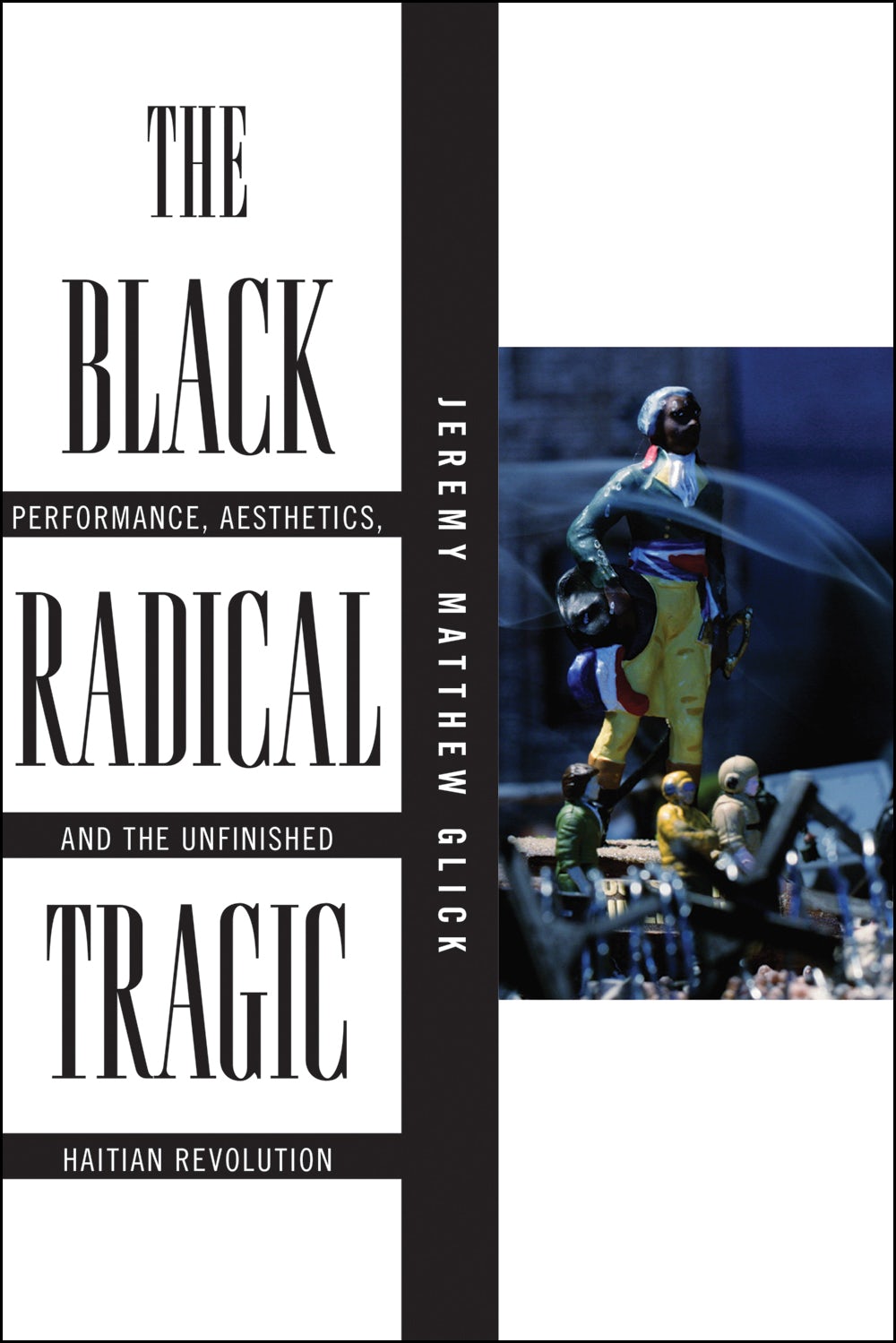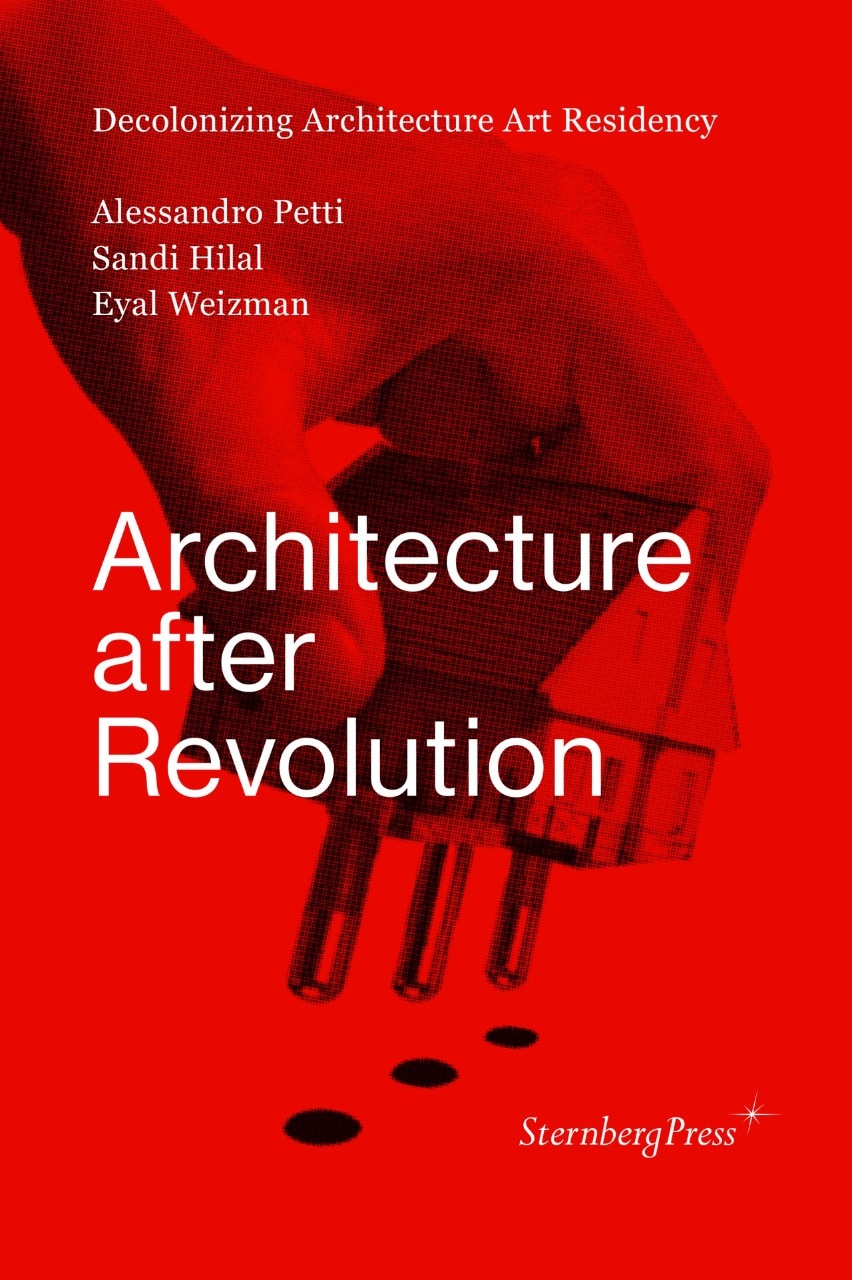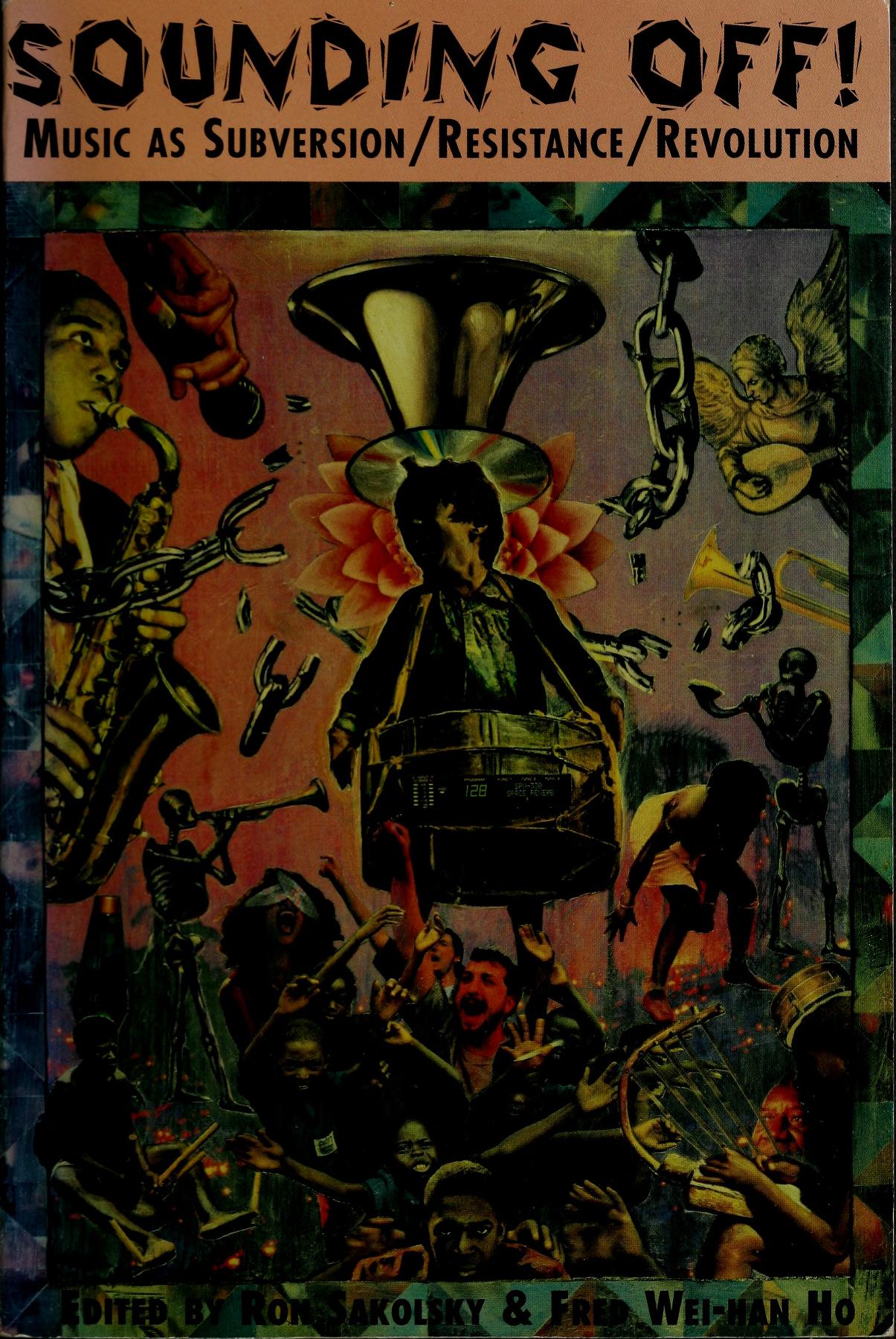Jeremy Matthew Glick: The Black Radical Tragic: Performance, Aesthetics, and the Unfinished Haitian Revolution (2016)
Filed under book | Tags: · aesthetics, black people, caribbean, history of literature, performance, revolution, tragedy

“As the first successful revolution emanating from a slave rebellion, the Haitian Revolution remains an inspired site of investigation for a remarkable range of artists and activist-intellectuals in the African Diaspora.
In The Black Radical Tragic, Jeremy Matthew Glick examines twentieth-century performances engaging the revolution as laboratories for political thinking. Asking readers to consider the revolution less a fixed event than an ongoing and open-ended history resonating across the work of Atlantic world intellectuals, Glick argues that these writers use the Haitian Revolution as a watershed to chart their own radical political paths, animating, enriching, and framing their artistic and scholarly projects. Spanning the disciplines of literature, philosophy, and political thought, The Black Radical Tragic explores work from Lorraine Hansberry, Sergei Eisenstein, Edouard Glissant, Malcolm X, and others, ultimately enacting a speculative encounter between Bertolt Brecht and C.L.R. James to reconsider the relationship between tragedy and revolution. In its grand refusal to forget, The Black Radical Tragic demonstrates how the Haitian Revolution has influenced the ideas of freedom and self-determination that have propelled Black radical struggles throughout the modern era.”
Publisher New York University Press, New York, 2016
America and the Long 19th Century series
ISBN 9781479844425, 147984442X
xiii+266 pages
Reviews: Slavoj Žižek (LA Review of Books, 2016), Marina Sofia Magloire (Women & Performance, 2017), Paige A. McGinley (TDR, 2017).
Comment (0)Alessandro Petti, Sandi Hilal, Eyal Weizman: Architecture after Revolution: Decolonizing Architecture Art Residency (2013)
Filed under book | Tags: · architecture, decolonization, palestine, revolution

“The work presented in this book is an invitation to undertake an urgent architectural and political thought experiment: to rethink today’s struggles for justice and equality not only from the historical perspective of revolution, but also from that of a continued struggle for decolonization; consequently, to rethink the problem of political subjectivity not from the point of view of a Western conception of a liberal citizen but rather from that of the displaced and extraterritorial refugee. You will not find here descriptions of popular uprising, armed resistance, or political negotiations, despite these of course forming an integral and necessary part of any radical political transformation. Instead, the authors present a series of provocative projects that try to imagine “the morning after revolution.”
Located on the edge of the desert in the town of Beit Sahour in Palestine, the architectural collective Decolonizing Architecture Art Residency (DAAR) has since 2007 combined discourse, spatial intervention, collective learning, public meetings, and legal challenges to open an arena for speculating about the seemingly impossible: the actual transformation of Israel’s physical structures of domination. Against an architectural history of decolonization that sought to reuse colonial architecture for the same purpose for which it was originally built, DAAR sees opportunities in a set of playful propositions for the subversion, reuse, profanation, and recycling of these structures of domination and the legal infrastructures that sustain them.
DAAR’s projects should be understood as a series of architectural fables set in different locations: an abandoned military base near Beit Sahour, the refugee camp of Dheisheh in Bethlehem, the remnants of three houses on the Jaffa beach, the uncompleted Palestinian Parliament building, the historical village of Battir, the village of Miska destroyed during the Nakba, and the red-roofed West Bank colony of Jabel Tawil (P’sagot) next to Ramallah-El Bireh.”
Publisher Sternberg Press, Berlin, 2013
ISBN 9783943365795, 3943365794
205 pages
via authors
Review: Nick Axel (Domus, 2014).
Commentary: Stephanie Bailey (Ibraaz, 2014).
PDF (17 MB)
Comment (0)Sounding Off! Music as Subversion/Resistance/Revolution (1995)
Filed under book | Tags: · music, music criticism, politics, resistance, revolution, social movements, subversion

Under the rallying cry of ‘Music is our bomb!’, this book collects thirty-eight articles and interviews with all sorts of practitioners of musicopolitical activism.
Edited by Ron Sakolsky and Fred Wei-han Ho
Publisher Autonomedia, Brooklyn, NY, 1995
ISBN 1570270589, 9781570270581
352 pages
PDF (16 MB, updated on 2017-7-19 to OCR version via esco_bar)
Comments (2)
